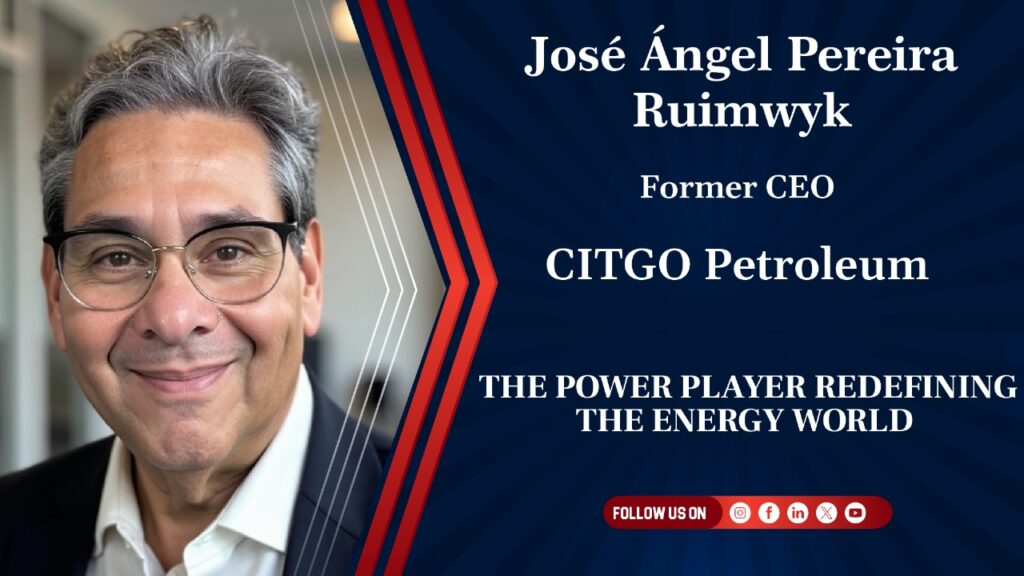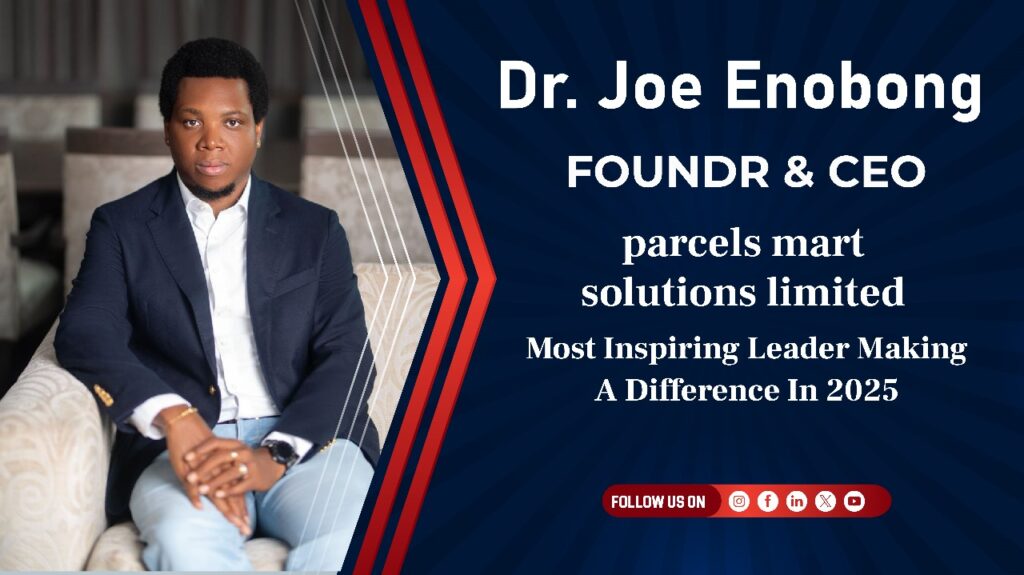From Hostage to Hope: The Extraordinary Journey of Jose Angel Pereira Ruimwyk

Former CITGO CEO Jose Angel Pereira Ruimwyk shares his harrowing 1,775-day wrongful detention in Venezuela, revealing lessons on faith, resilience, and leadership, his advocacy for the wrongfully detained, and his mission to inspire others to overcome adversity and find purpose beyond survival.
In November 2017, what began as a seemingly routine business trip for Jose Angel Pereira Ruimwyk—then CEO of CITGO Petroleum—would become a life-altering odyssey of resilience, faith, and purpose. Alongside five of his colleagues, Jose found himself abruptly surrounded by armed security forces in Caracas, Venezuela.
At first, he believed it was a misunderstanding that would be swiftly resolved. But as the hours stretched into days, and days into weeks, a grim reality emerged: they were not being detained for any wrongdoing—they were pawns in a larger geopolitical struggle.
This was the beginning of 1,775 days—nearly five years—of wrongful captivity in one of the world’s most politically volatile nations. What followed was a test of human endurance and a testament to the power of faith, leadership, and the unyielding bond of family.
The Moment Everything Changed
Jose recalls that pivotal moment with vivid clarity.
“It came like a lightning bolt,” he says. “We were there for a routine meeting, and suddenly armed security forces were all around us. At first, you tell yourself, ‘This will be cleared up.’ But when days turned into weeks, I realized we were pawns in a much bigger political game.”
This shift—from thinking he would be home in hours to recognizing the political reality—marked the first step in his long journey through captivity. It also planted the seed for the survival mindset he would need to endure the years ahead.
Faith as the Anchor
For Jose, survival was not merely about enduring each day—it was about finding meaning in the suffering.
“My faith in God was my anchor,” he says. “God makes possible the impossible. I clung to scripture, prayer, and the belief that my story wasn’t going to end inside those walls.”
He speaks often of the secret lifeline he maintained with his wife, Mervis. Through nearly a thousand exchanged letters, they wove a thread of hope that kept him grounded.
“Every word from her reminded me that I had a reason to fight to stay alive,” Jose reflects.
Leadership in the Face of Darkness
Before his detention, Jose’s career had been defined by corporate leadership at the highest levels. The discipline, strategic thinking, and emotional composure required in the boardroom became tools for survival in prison.
“As CEO of CITGO, I had faced high-pressure decisions—but nothing compared to captivity. Still, I used the same principles: assess the situation, manage your emotions, and focus on what you can control.”
In the confines of his cell, “what you can control” meant maintaining dignity, keeping his mind sharp, and preserving physical health as best he could—despite suffering a heart attack in 2021.
The Mental Battle
The most harrowing part of his captivity was not physical, but psychological.
“The isolation and uncertainty were crushing,” he admits. “Not knowing if you’ll ever see freedom again—that’s the real prison.”
Every day became a deliberate choice not to succumb to despair. For Jose, resilience was not something forged in those years—it was something he had built throughout his life and was now called to draw upon.
From Hero to Villain: Sharing the Truth
Upon his release, Jose faced another difficult decision: whether to share his deeply personal story. His memoir, From Hero to Villain, is a raw, unflinching account of his captivity and the road back to freedom.
“I didn’t write it just for me,” he says. “I wrote it for everyone who’s been knocked to their knees by life. I wanted to leave a legacy of resilience, faith, and the message that no matter how dark your valley, there’s a way out.”
Lessons in Leadership and Life
From his ordeal, Jose distilled three lessons that he now shares with leaders and individuals facing adversity:
- Purpose will keep you alive. Without a reason bigger than yourself, it’s easy to lose the will to endure.
- Resilience is built before the storm. Your habits, mindset, and faith prepare you for crises long before they arrive.
- Faith is the ultimate source of strength. In his words, “It gives you the courage to take the next step, even when you can’t see the path ahead.”
Coaching from Experience, Not Theory
Now a Leadership and Resilience Coach, Jose works with individuals facing their own personal or professional storms. His approach is rooted not in abstract theory, but in lived experience.
“I meet people where they are. I help them reframe their situation, identify their inner strengths, and create actionable steps. It’s not about surviving—it’s about thriving.”
An Advocate for the Wrongfully Detained
Jose’s advocacy work is deeply personal. As part of Bring Our Families Home (BOFH), he joins other survivors and families in pressing for stronger U.S. action on wrongful detentions.
“BOFH is a community of people who get it,” he explains. “Together, we’ve created a louder, unified voice that’s harder to ignore in Washington and on the world stage.”
While he acknowledges progress—such as the Robert Levinson Hostage Recovery and Hostage-Taking Accountability Act—he calls for broader definitions of wrongful detention, more transparency with families, and tougher diplomatic measures against regimes that use human beings as bargaining chips.
A New Understanding of Hostage Diplomacy
Jose’s years in captivity gave him an insider’s view of how authoritarian regimes exploit foreign citizens.
“The Maduro regime in Venezuela has perfected a model of hostage diplomacy similar to Iran,” he warns. “For U.S. foreign policy to be effective, it must address this directly—with both strategic diplomacy and a firm stance against such tactics.”
The Role of Family in Securing Freedom
Jose is unequivocal: without his family’s tireless advocacy, he might still be behind bars.
From the Freedom Alley mural in Georgetown—featuring six-foot-tall portraits of detained Americans—to the Canguro PR campaign at the United Nations, his family’s efforts kept his story alive in the media and in diplomatic circles.
“These weren’t just symbolic gestures,” Jose emphasizes. “They were fundamental in raising awareness, shaping public opinion, and ultimately contributing to our release.”
A Message to Families in the Fight
To those enduring the agony of a loved one’s wrongful detention, Jose offers solidarity and hope:
“You are not alone. There’s a growing network—James Foley Foundation, Hostage Aid Worldwide, Amer Fakhoury Foundation, Hostage US, Richardson Center, Freedom House, Spufan initiative—standing with you.”
He also points to ongoing policy work to revise the Levinson Act to provide broader physical, mental, and financial support to affected families.
A Call for International Action
Beyond the U.S., Jose believes wrongful detention is a global crisis. He has addressed the United Nations twice, urging the creation of a dedicated group to monitor hostage diplomacy, share intelligence, and coordinate responses.
“We need clear deterrents and strong punishments for regimes that engage in this practice—sanctions, diplomatic isolation, whatever it takes,” he insists.
Building Bridges in a Divided World
For Jose, survival was not just about enduring hardship—it was also about holding on to humanity. He believes that even in a polarized world, empathy can bridge divides.
“We build bridges by focusing on what unites us,” he says. “That means honest conversations, human stories beyond politics, and working together on common causes like education or humanitarian aid.”
Advice for Life’s Toughest Moments
His advice to anyone facing adversity is both simple and profound:
“God makes possible the impossible. Find your purpose—something bigger than yourself. Purpose gives meaning to the struggle and turns pain into fuel. Combine it with faith, and you’ll not only survive, you’ll transform.”
From Captive to Coach, Advocate, and Author
Today, Jose Angel Pereira Ruimwyk stands as a symbol of resilience—not because he avoided hardship, but because he endured it without losing faith or dignity. His transformation from corporate leader to hostage survivor to global advocate underscores a truth he now shares with audiences worldwide:
No matter how deep the valley, there is a way out. And often, that way is lit by faith, guided by purpose, and strengthened by the people who refuse to stop fighting for you.
Final Reflection
Jose’s story is not only one of survival but of leadership in its most essential form—the ability to guide oneself and others through the darkest of times. His journey challenges us to prepare our minds and hearts before crisis strikes, to build bridges instead of walls, and to stand united against injustice wherever it appears.
In his own words:
“Lean on God, find your purpose, and take it one step at a time. The storm will pass, and you’ll discover you’re stronger than you ever imagined.”






